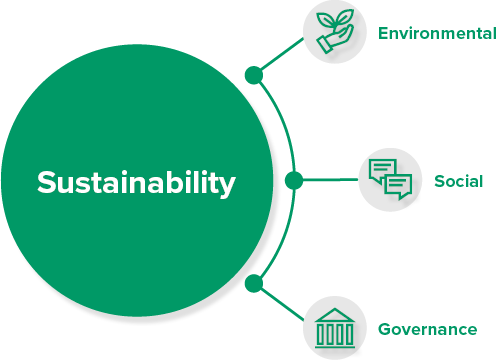
Aletta Boshoff
National Leader, Sustainability Reporting
Partner, Advisory
Now more than ever, organisations face increasing pressure from stakeholders to address various sustainability matters. Driven by the demands of capital markets, communities, customers and governments, organisations are required to assess their risks and communicate their impact, particularly when it comes to environmental, social and governance (ESG) matters.
With international sustainability standards developing at pace and regulations increasing in jurisdictions worldwide, sustainability is an increasingly critical component in a business's social licence to trade. Organisations that fail to act in this space risk potential impacts to their corporate reputation, risk mitigation, market opportunities, culture and even employee value proposition.
No matter where you're starting your sustainability journey, BDO's national team of sustainability consultants are here to guide you through the complex landscape and help you succeed, our sustainability experts can help you with:
Growing numbers of stakeholder groups are demanding greater transparency across a broad range of issues, from climate change to modern slavery, employee health and wellbeing, diversity and inclusion, and much more. For humanitarian and business reasons, organisations must act now and embrace the benefits of focusing on sustainability.
We approach sustainability through the universally recognised ESG framework, helping us to unpack and categorise the wide-ranging risks and metrics. Everything we do at BDO is viewed through a sustainability lens to ensure that we implement and embed sustainability principles as both a global initiative and a business imperative. At the same time, our sustainability experts also support our clients on their sustainability journeys.
Our team of consultants can assist you in your ESG journey. Whether you need assistance with long term planning, or current risk assessment, our ESG consultants can help you drive sustainability in your organisation.
While there is no universal standardisation of ESG matters, there are some common factors that businesses tend to acknowledge. ESG factors can also be interlinked and may cross into more than one of the environmental, social, or governance buckets. From managing carbon emissions to diversity and inclusion or modern slavery reporting, here are some examples of the ESG factors that might be important to your strategy and stakeholders:

We support organisations in measuring the greenhouse gas emissions they produce throughout their operations and supply chain.
We assist organisations in identifying and implementing reporting frameworks or integrated reporting requirements to meet stakeholder and regulatory needs.
From addressing the impacts on the planet, people or community or looking to improve governance systems, we help to ensure organisations continue to create sustainable value for stakeholders.
Demand for sustainability disclosure and the need for reliable and accurate information are increasing. We improve the credibility of the sustainability disclosures and the quality of reporting.
Sign up to receive our sustainability insights direct to your inbox.
Contact us
Contact our team to discuss your needs using the request for service form.
Alternatively, call 1300 138 991 to speak with an adviser in your nearest BDO office.

Aletta Boshoff

Kristy Porter

Aletta Boshoff

Brett Spicer

Dylan Byrne

Justin Harness

Kevin Frohbus

Kristy Porter

Sherif Andrawes